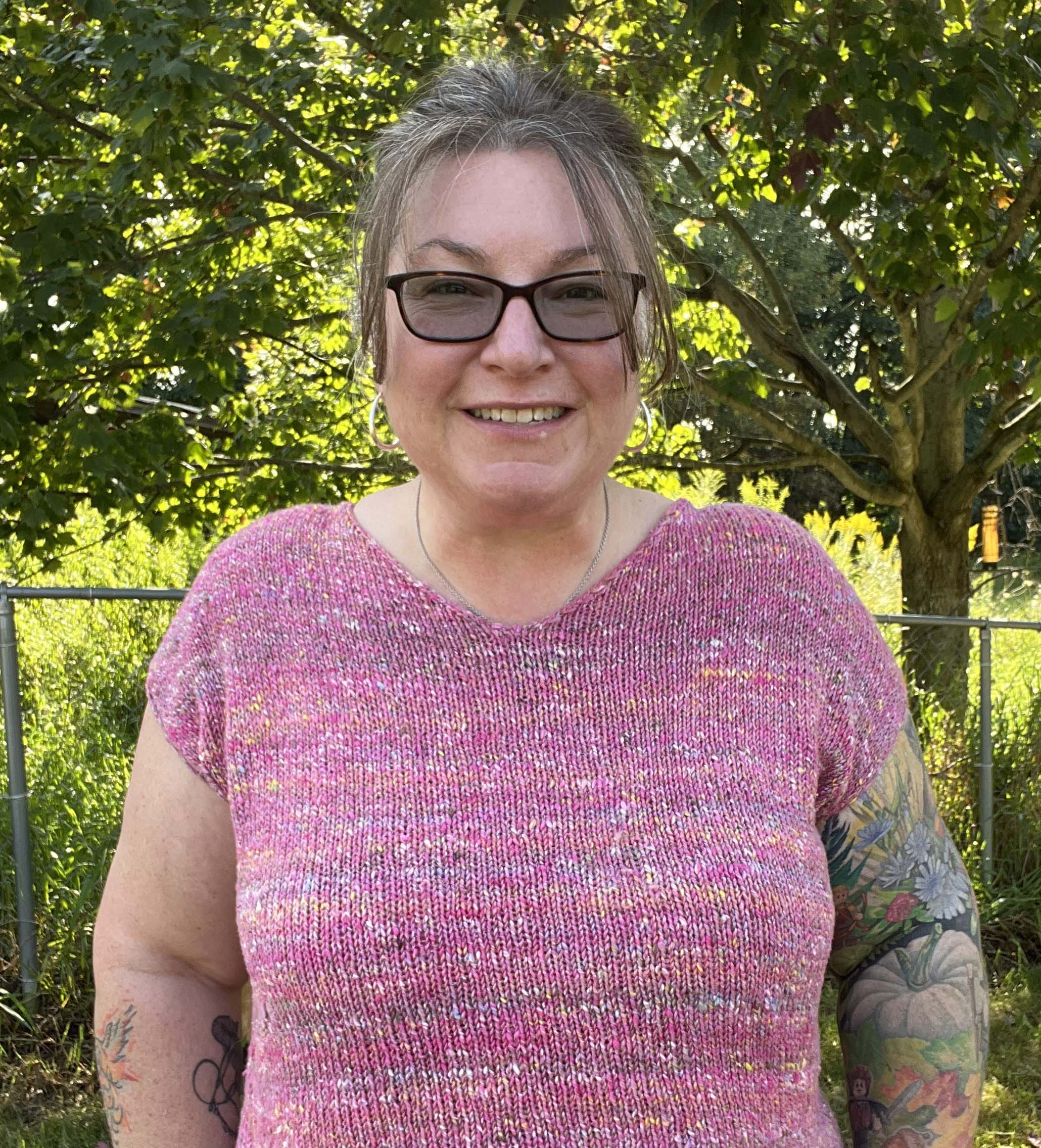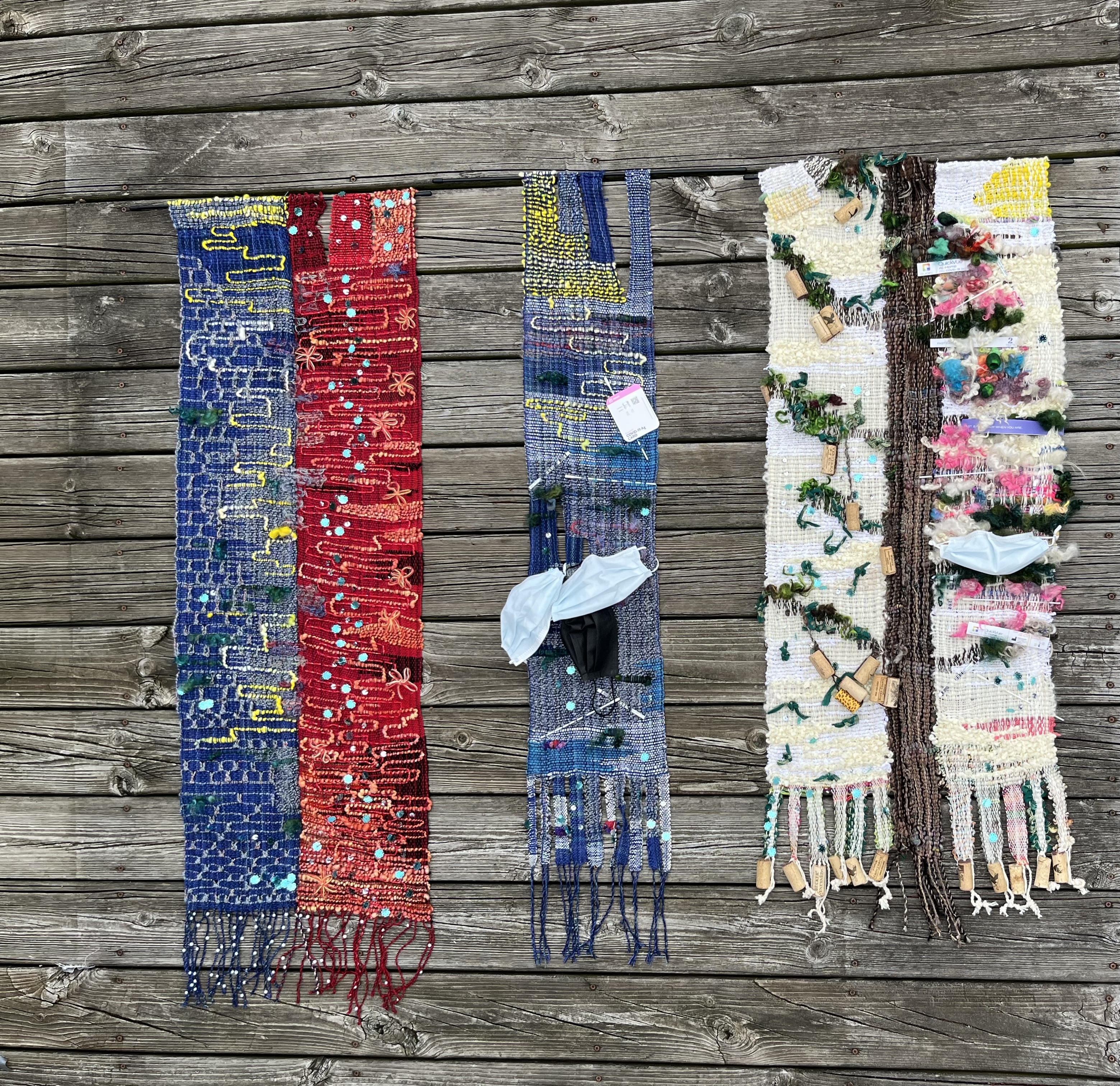Returning to school after a long break can be a daunting decision to make. Master of Public Health student Andrea Morrison decided to apply to the program after taking time off to raise her family. To keep herself grounded, Morrison uses her passion for yarn arts to focus and improve her mental health. She writes about what inspired her to earn her MPH and how knitting helps spark creativity in unconventional ways.
Connecting creativity and public health
Once upon a time, my husband and I decided we wanted a farm with animals. We chose to raise alpacas and Nigerian dwarf goats. Back then, I didn’t know how to make anything with yarn, but I always appreciated knit and woven goods. I couldn’t make anything… or so I thought. Then, one day, I met a woman who threw two needles and a ball of yarn at me and declared me a knitter. By golly, I was a knitter! I learned how to knit and spin yarn. Within the year, I made yarn from my herd and knitted with that yarn. I have been selling my creations for over ten years at various art shows and online.
Some call it a hobby; I call it an integral part of my identity. Knitting, weaving, and spinning yarn is a meditation for me. The rhythm of working with the yarn is soothing and helps me focus, so there is a mental health aspect to being creative. I rarely attend conferences or listen to lectures where I don’t have a knitting project in process.
Last semester, I took Global Pandemics and Public Health Systems, Laws, and Community Impacts (PH862) with John Clements. Our class was asked to think outside the traditional paper format and use our creativity and skills to present our research and data. I decided to use textile art to interpret the question: How do structural bias, social inequities, and racism undermine health, specifically behavioral and psychological factors, to achieve health equity at organizational, community, and societal levels? I can’t thank Clements enough for this opportunity to stretch my creative legs.
I used this opportunity to look at data in a new way through colors and texture. We need to think about how we can share data in a way that will engage stakeholders, and this experiment using woven fabric was a great way to explore data storytelling.
My decision to pursue a public health degree was driven by a deep-seeded commitment to serving my community. I saw it as an opportunity to enhance my skills and knowledge and to apply evidence-based and community-based interventions to improve community health outcomes. Since being accepted into the MPH program, I have advanced in my career as the maternal child health educator at the Calhoun County Public Health focusing on fetal infant mortality review and infant safe sleep. I’ve written the first FIMR report for our county since 2014, wrote multiple articles published in newspapers and a magazine, collaborated on numerous community baby showers and participated in multiple grant writing projects at work while taking 2 to 3 courses each semester.
I took a long time off between earning my undergraduate degree and now to focus on my family. I waited until my youngest child graduated from Air Force Basic Training to enroll in the program. Returning to school after such a long break was a scary decision. So much has changed with education and communication since I was last a student.
I found an inner strength I didn’t know existed or had forgotten.
I am proud of the student I am now, what I’ve learned, and how I am already integrating the knowledge into my work. I’ve learned important life lessons in every class I’ve taken in the MPH program:
- You must look inward and understand yourself first. You need to understand your experiences and biases before you can help others.
- Pick topics that will help you learn about yourself and allow you to grow personally and professionally. Be creative, intentional, and passionate with your courses, practicum, capstone, and life.
- Life is too short not to be excited about your work, school, or career, and communities need public health workers who are passionate about their work.
I have the skills, knowledge, and enthusiasm to catalyze change. This program has helped me understand how to become a better advocate for programs and seek leadership roles to improve systems within my community and beyond by addressing and promoting health equity, addressing racism and bias, and uplifting and empowering community members.

